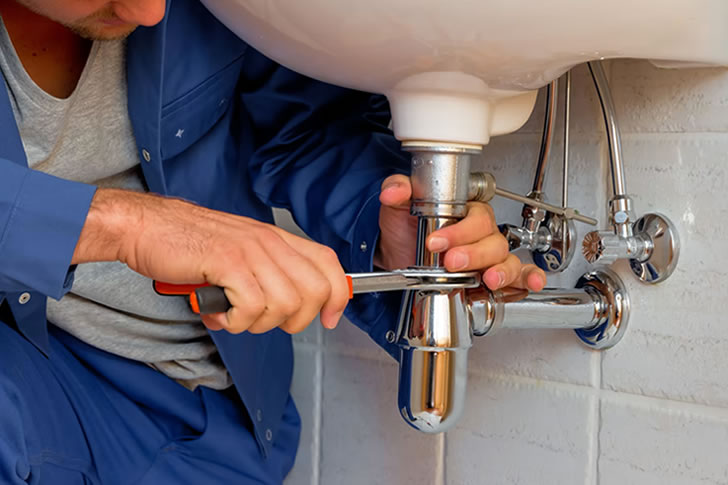Plumbing issues can disrupt daily life. Here's an expert guide full of professional advice and practical maintenance tips for efficient plumbing management.

Plumbing is a vital trade that requires a combination of technical skills, problem-solving abilities, and customer service expertise. Whether you’re a seasoned plumber or just starting, these expert tips will help you achieve success in plumbing and maintenance.
1. Stay Updated with Industry Trends
- Continuing Education: Regularly attend workshops, seminars, and training sessions to stay current with the latest plumbing technologies, codes, and regulations.
- Certifications: Consider obtaining additional certifications in specialized areas, such as green plumbing or advanced pipefitting, to enhance your skill set and marketability.
2. Master the Basics
- Understand Plumbing Systems: Familiarize yourself with the various plumbing systems, including residential, commercial, and industrial setups. Know how water supply, drainage, and venting systems work.
- Know Your Tools: Invest in high-quality tools and learn how to use them effectively. Regularly maintain your tools to ensure they are in good working condition.
3. Focus on Customer Service
- Communication Skills: Develop strong communication skills to explain plumbing issues and solutions clearly to clients. Listen actively to their concerns and provide honest assessments.
- Professionalism: Always present yourself professionally. Arrive on time, dress appropriately, and maintain a clean work environment. This builds trust and credibility with clients.
4. Effective Problem-Solving
- Diagnostic Skills: Hone your ability to diagnose plumbing issues quickly and accurately. Use a systematic approach to identify the root cause of problems.
- Creative Solutions: Sometimes, traditional methods may not work. Be open to innovative solutions that can save time and resources.
5. Safety First
- Follow Safety Protocols: Always adhere to safety guidelines and regulations. Use personal protective equipment (PPE) and ensure your work area is safe for both you and your clients.
- Know Emergency Procedures: Be prepared for emergencies, such as gas leaks or severe water damage. Familiarize yourself with emergency protocols and local emergency contacts.
6. Build a Strong Network
- Connect with Other Professionals: Network with other plumbers, contractors, and suppliers. Building relationships can lead to referrals and collaborative opportunities.
- Join Professional Associations: Consider joining plumbing associations or trade organizations. These groups often provide resources, training, and networking opportunities.
7. Effective Time Management
- Plan Your Day: Organize your schedule to maximize efficiency. Allocate time for travel, job completion, and unexpected delays.
- Prioritize Tasks: Focus on high-priority tasks first, especially when dealing with emergency calls. This ensures that urgent issues are addressed promptly.
8. Maintain Accurate Records
- Documentation: Keep detailed records of all jobs, including client information, services performed, parts used, and any warranties. This helps with follow-ups and future maintenance.
- Invoicing: Use professional invoicing software to streamline billing and keep track of payments. Clear invoices enhance professionalism and ensure timely payments.
9. Invest in Technology
- Use Plumbing Software: Consider using plumbing management software to schedule jobs, manage inventory, and track customer interactions. This can improve efficiency and organization.
- Embrace Smart Technology: Stay informed about smart plumbing technologies, such as leak detection systems and smart water heaters, which can offer added value to your clients.
10. Market Your Services
- Build an Online Presence: Create a professional website and utilize social media to showcase your services, share customer testimonials, and provide plumbing tips.
- Local SEO: Optimize your online presence for local search engines to attract more clients in your area. Encourage satisfied customers to leave positive reviews.
11. Offer Maintenance Plans
- Preventive Maintenance: Encourage clients to sign up for regular maintenance plans. This not only helps them avoid costly repairs but also provides you with a steady stream of income.
- Educate Clients: Teach clients about the importance of regular maintenance and how they can prevent plumbing issues in their homes.
12. Stay Organized
- Inventory Management: Keep track of your inventory and tools to avoid delays on the job. Regularly check and restock supplies as needed.
- Job Management: Use checklists for each job to ensure all tasks are completed and nothing is overlooked.
Conclusion
Success in plumbing and maintenance requires a blend of technical skills, customer service, and effective business practices. By following these expert tips, you can enhance your plumbing skills, build a loyal customer base, and ensure a thriving career in the plumbing industry. Remember, continuous learning and adaptation are key to staying ahead in this ever-evolving field.









